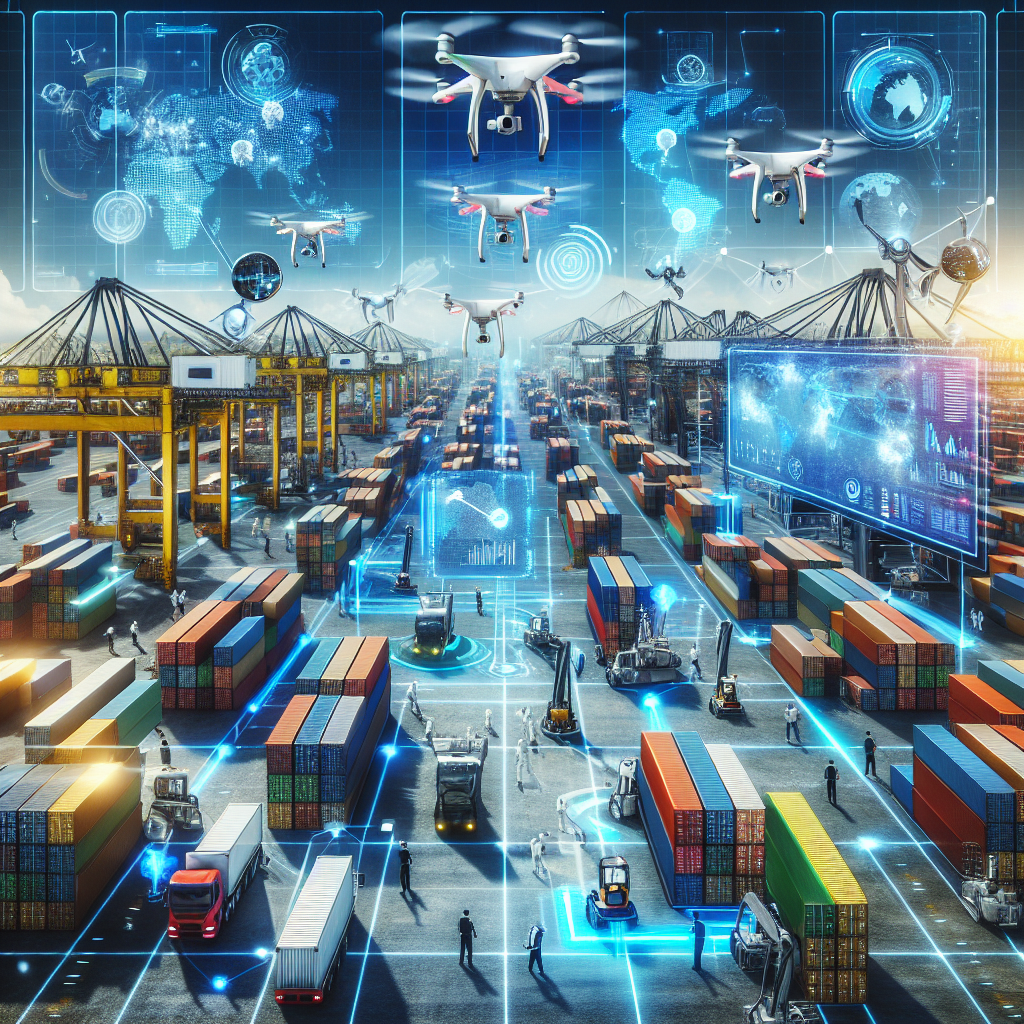The logistics industry is constantly evolving, with new technologies being developed to streamline processes and improve efficiency. One of the most exciting developments in recent years is the use of artificial intelligence (AI) for real-time cargo tracking and monitoring. AI has the potential to revolutionize the way logistics companies manage their supply chains, providing greater visibility and control over shipments.
AI-powered tracking and monitoring systems use a combination of sensors, data analytics, and machine learning algorithms to track the location and condition of cargo in real-time. This allows logistics companies to monitor the status of their shipments throughout the supply chain, from the moment they leave the warehouse to their final destination. By leveraging AI for real-time cargo tracking and monitoring, logistics companies can improve operational efficiency, reduce costs, and enhance customer satisfaction.
Benefits of AI for Real-Time Cargo Tracking and Monitoring
There are several key benefits of using AI for real-time cargo tracking and monitoring in logistics:
1. Increased visibility: AI-powered tracking systems provide real-time visibility into the location and condition of cargo, allowing logistics companies to track shipments with greater accuracy and efficiency. This increased visibility helps companies identify potential issues or delays in the supply chain, enabling them to take proactive measures to resolve them before they impact operations.
2. Improved efficiency: By using AI to automate the tracking and monitoring process, logistics companies can streamline operations and reduce the need for manual intervention. This allows companies to allocate resources more effectively, optimize routes, and improve overall efficiency in the supply chain.
3. Enhanced security: AI-powered tracking systems can help logistics companies enhance the security of their shipments by providing real-time alerts and notifications in case of any unauthorized access or tampering. This helps companies mitigate the risk of theft or loss of cargo, ensuring that shipments arrive at their destination safely and securely.
4. Data-driven insights: AI algorithms analyze the data collected from tracking and monitoring systems to provide valuable insights into the performance of the supply chain. By leveraging these insights, logistics companies can identify trends, optimize processes, and make informed decisions to improve operational efficiency and customer satisfaction.
5. Real-time decision-making: AI-powered tracking systems enable logistics companies to make real-time decisions based on the information collected from sensors and data analytics. This allows companies to respond quickly to changing conditions in the supply chain, such as delays, disruptions, or emergencies, ensuring that shipments are delivered on time and in optimal condition.
FAQs
Q: How does AI-powered tracking and monitoring work?
A: AI-powered tracking and monitoring systems use a combination of sensors, data analytics, and machine learning algorithms to collect and analyze data in real-time. Sensors attached to cargo containers or vehicles capture information such as location, temperature, humidity, and vibration, which is then transmitted to a central system for analysis. Machine learning algorithms process this data to provide insights into the status of shipments, identify patterns and trends, and generate alerts or notifications in case of any issues or anomalies.
Q: What are the key features of AI-powered tracking systems?
A: Key features of AI-powered tracking systems include real-time tracking and monitoring of cargo, automated data collection and analysis, predictive analytics, alerting and notification capabilities, and integration with other logistics systems. These features enable logistics companies to track shipments with greater accuracy, optimize routes, and make data-driven decisions to improve operational efficiency.
Q: How can AI improve customer satisfaction in logistics?
A: By providing real-time visibility into the status of shipments, AI-powered tracking systems enable logistics companies to keep customers informed about the location and condition of their cargo. This increased transparency builds trust and confidence in the logistics provider, leading to higher customer satisfaction. Additionally, AI algorithms can analyze customer feedback and preferences to personalize services, optimize delivery routes, and provide a more seamless and efficient shipping experience.
Q: What are the challenges of implementing AI for real-time cargo tracking and monitoring?
A: Some of the challenges of implementing AI for real-time cargo tracking and monitoring include data security and privacy concerns, integration with existing systems and processes, scalability and complexity of AI algorithms, and cost of implementation. Logistics companies must carefully assess their needs and requirements, conduct thorough testing and evaluation of AI solutions, and ensure compliance with regulations and standards to successfully implement AI-powered tracking systems.
In conclusion, leveraging AI for real-time cargo tracking and monitoring in logistics offers numerous benefits for companies looking to improve operational efficiency, reduce costs, and enhance customer satisfaction. By using AI-powered tracking systems, logistics companies can increase visibility, improve efficiency, enhance security, gain data-driven insights, and make real-time decisions to optimize their supply chain operations. With the right technology and strategy in place, AI has the potential to revolutionize the way logistics companies manage their shipments and deliver superior service to customers.

